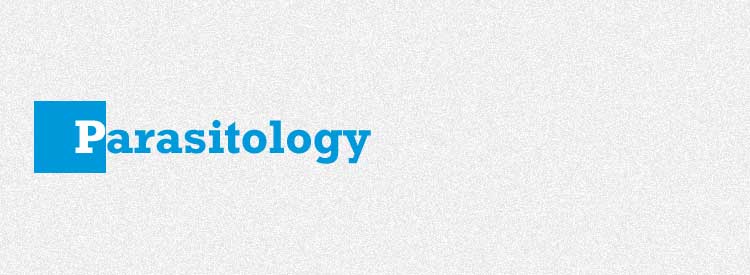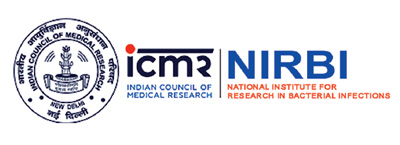ICMR - National Institute for Research
in Bacterial Infections
आईसीएमआर - राष्ट्रीय जीवाणु संक्रमण अनुसंधान संस्थान
Department of Health Research, Ministry of Health and Family Welfare, Government of India
स्वास्थ्य अनुसंधान विभाग, स्वास्थ्य और परिवार कल्याण मंत्रालय, भारत सरकार
WHO Collaborating Centre For Research and Training On Diarrhoeal Diseases
Parasitology
Parasitology

The Division of Parasitology at NICED actively integrates
research into the pathogenic mechanisms of parasitic diseases at
the molecular and cellular levels with epidemiological studies.
While ensuring an increasing understanding of human parasitic
diseases, like amoebiasis, giardiasis, cryptosporidiosis etc.,
this provides the foundation for further developments in
screening, diagnosis and future therapeutics. To support these
fundamental activities, the Department of Parasitology provides
extensive research and training opportunities to graduate
students and other trainees of India and abroad.
We have been working extensively and successfully for mapping
the prevalence of STH throughout India. Our data and report have
been utilized to formulate a policy to initiate annual/biannual
deworming strategy by Govt. of India.
We have reported for the first time that although the common
aetiology of amoebiasis (E histolytica) is decreasing but a more
challenging amphizoic Entamoeba moshkovskii which was previously
an environmental strain and not at all a pathogen is now
becoming the major cause of amoebiasis in human. This is the
first report of E moshkovskii as a pathogenic aetiology for
amoebiasis in human and with very high prevalence. This is the
most important event in human amoebiasis research in recent
times.
Our long term work on parasitic diarrhoea has revealed many
highly interesting and concerning strains of different
parasites. Our study has revealed that asymptomatic Entamoeba
histolytica infection can turn directly to amoebic liver abscess
for some special virulent factor in its genome. Our work first
suggested immense zoonotic transmission of Cryptosporidium and
other coccidian parasites in India. Our study on assemblage
swapping in Giardia first revealed that sexual recombination is
possible in this ancient mesokaryote. This division has
developed a new stool collection procedure for better
diagnostics and preservation (TFT). This test helps in very high
sensitivity, specificity and preservation of stool sample for
further diagnostics using molecular methods.
Numerous novel genotypes of different pathogenic parasites were
discovered in the study region, which are phylogenetically
unique and distinct from isolates previously reported in other
geographical areas. More than 1000 new genotypes have been
submitted in Genebank.
We have formulated many processes for quick detection,
identification and multiplex detection of different parasites.
This lab is one of the CDC accredited lab for training of
identification and quick detection of different parasites both
molecular as well as microscopic. Our recent elegant research on
multiplex detection of newly identified pathogenic human
parasites would have immense help for quick diagnosis of
previously unknown pathogenic parasites.
Our recent studies on metronidazole resistant Giardia helped to
understand why newer chemotherapeutics are important for
treatment.
Our study on Human pulmonary paragonimiasis in crab eating
communities and smear negative suspected TB cases has addressed
the challenge of misdiagnosis by determining the incidence rate
of Paragonimus spp. Future endeavours involve developing a
cost-effective nucleotide-based detection kit to enhance
diagnosis and genetic characterization of local isolates.
This division has strong collaborations with NIID, Japan,
Okayama University, Japan, CDC, USA, NIH, USA, City University
of New York, USA, etc.
This division offers PhD and Post-Doctoral training program in
different aspects of Parasitology. Beside its PhD and
Post-Doctoral program, this department organizes workshops and
training for scientists, students and technicians and also
entertains short training to Post Graduate students of different
universities for learning basic molecular biology, cell biology
and immunology techniques.
Different prestigious grants and awards from National and
International level have enriched this department time to time


